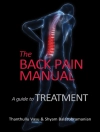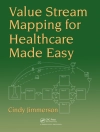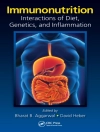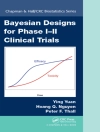A growing number of people suffer from so-called resistant hypertension, that is to say, high blood pressure that does not respond to treatment. This disorder is of great current interest and importance for public health, being a common clinical problem faced by both primary care clinicians and specialists. Furthermore, as older age and obesity are among the strongest risk factors for uncontrolled hypertension, the incidence of resistant hypertension will likely increase as the population becomes more elderly and heavier. While the prognosis of resistant hypertension is unknown, cardiovascular risk is undoubtedly increased since patients often have a history of long-standing, severe hypertension complicated by multiple other cardiovascular risk factors. This volume, compiled by a panel of world-renowned experts, offers a comprehensive exploration of resistant hypertension, covering epidemiology, complex diagnostic aspects, and the therapeutic options currently available, with due attention to overall treatment strategies. New therapeutic agents and procedures, such as renal denervation and baroreceptor stimulation, are also described. In addition, the book addresses the economic aspects of resistant hypertension and the role of the different professional figures, from GPs to hypertension specialists, in dealing with it.
İçerik tablosu
1. Resistant Hypertension: Definition, Prevalence and Cardiovascular Risk.- 2. Resistant Hypertension: Neurohumoral Aspects.- 3 Metabolic Alterations.- 4. Cardiac and Vascular Alterations in Resistant Hypertension.- 5 The Pathophysiology of the Kidney in Resistant Hypertension.- 6 False vs. True Resistant Hypertension.- 7 Causes of Resistant Hypertension.- 8 24-hour Ambulatory BP Monitoring and Home BP Measurements in Resistant Hypertension.- 9 Factors Predicting Blood Pressure Response to Treatment.- 10 Treatment of Resistant Hypertension. Which Additional Antihypertensive Drugs?.- 11 The Role of Renal Denervation.- 12 The Role of Carotid Baroreceptor Stimulation.- 13 Pathophysiology: Metabolic Alterations and Risk Factors.- 14 Follow-up of Patients with Resistant Hypertension.- 15 Resistant Hypertension: Cost-Benefit Considerations.- 16 Involvement of Health Professionals From the General Practitioner to the Hypertension Specialist and the Hypertension Center.












